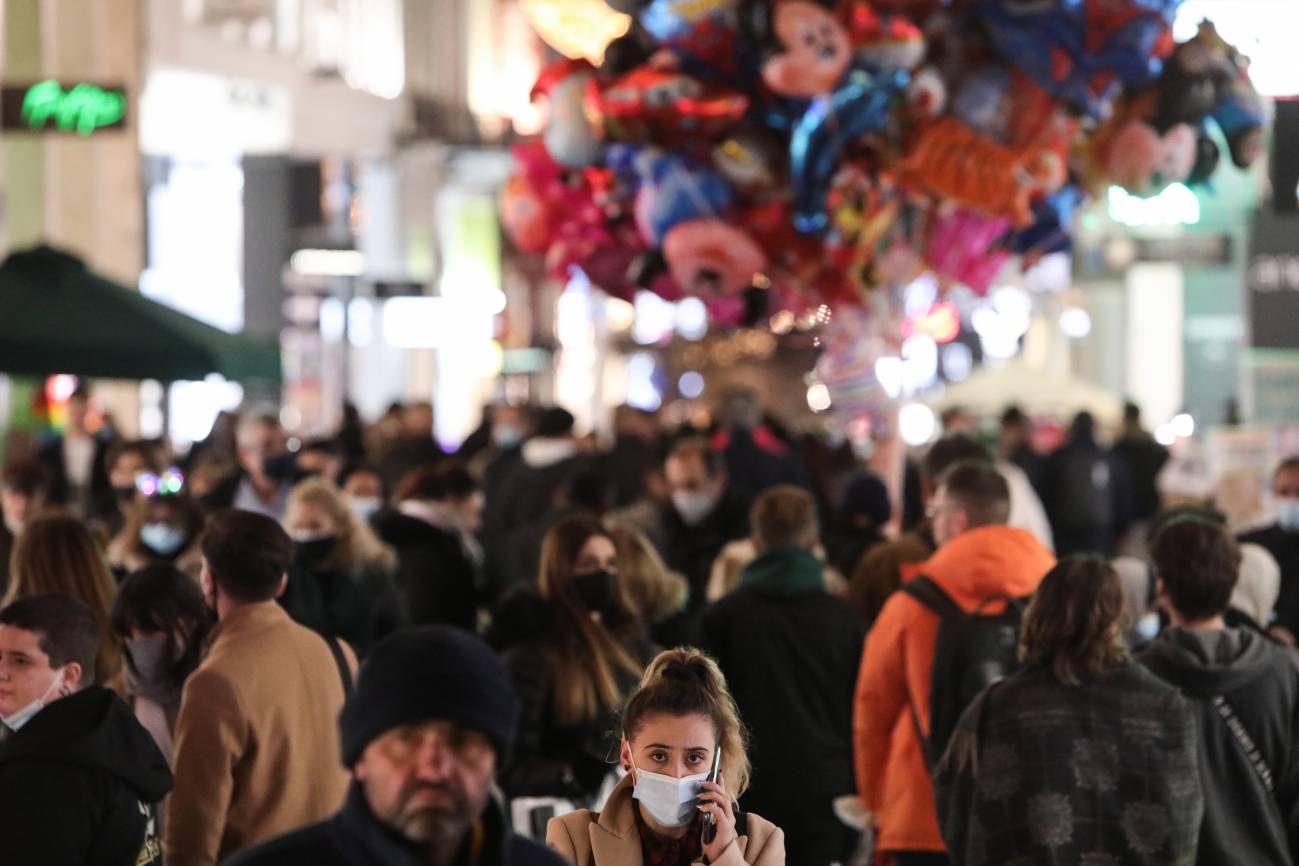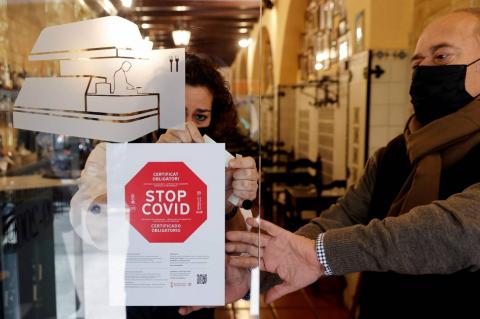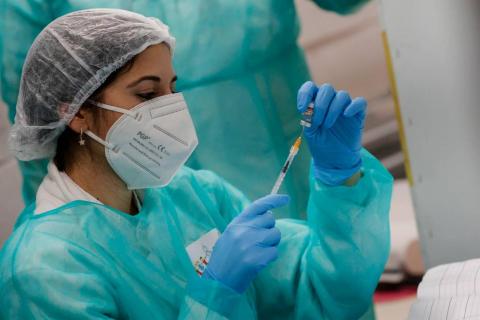It is just over a month since the omicron variant burst into the pandemic news. On November 26, the WHO classified it as "of concern", partly because it had "more than thirty mutations in the spicule gene, in addition to numerous mutations in other regions of the genome", many of which had already been linked "to increased transmissibility or to a certain degree of escape from the immune response", as explained in the Health Ministry's most recent technical document.
Researchers around the world were racing against the clock to study it. After weeks of speculation, the first conclusive works confirm the ability of omicron to infect by overcoming the shield of vaccines. On the other hand, the vaccines do seem to maintain their efficacy against severe disease, although the data on this question remain preliminary.
Two doses of vaccine do not prevent infection
On December 23, Nature published five studies from teams in the United States, Europe (France, Switzerland), South Africa and China, all reviewed by independent researchers. Although with variations, the common purpose of these papers was to analyze whether antibodies in vaccinated people, or those who had passed covid-19, stop an infection or reinfection by Omicron. All of them detected a significant, even total, loss of this capacity.
However, experts insist - in statements to the Vaccine Media Hub - that antibodies are one of the body's first lines of defense against covid, but not the only one; the fact that they lose the ability to stop the advance of the infection does not mean that the vaccines do not work.
The third dose could act as a shield
Two of the studies published in Nature found that the loss of antibody effectiveness "is less after a third dose of vaccine," write the authors of the paper led by Davide Corti of Humabs Biomed SA, a Vir Biotechnology company.
Also the team led by Olivier Schwartz of the Institut Pasteur (France) finds that "omicron escapes most monoclonal antibodies and to a large extent also vaccine-generated antibodies, [but] is still neutralized by antibodies generated by the booster dose."
Preliminary data generated by the UK Health Safety Agency (UKHSA) show that the effectiveness of Pfizer's vaccine in preventing infection would be 70-75% after the third dose.
Vaccines could prevent severe disease
"I think we already know that the vaccines maintain responses against the variant and will surely be sufficient to maintain their objective of avoiding severe disease and significantly reducing hospitalization," Manuel Juan, head of the Immunology Service at the Hospital Clínic in Barcelona, told the Vaccine Media Hub on December 10.
He was referring to the fact that, although the antibodies do not neutralize Omicron, everything points to the fact that cellular immunity, which is slower to activate, will continue to be equally effective. According to Juan, "the T-cell response will be at least partially conserved. (...) It is to be expected that the omicron variant will have a spectrum of protection similar to the other variants, since this protection is not so much quantitative as qualitative, which can be explained by the immunological memory that will exist".
This opinion is shared, among others, by Vicente Mas, researcher at the Viral Biology Laboratory of the Carlos III Health Institute, who states: "According to the analysis of the omicron sequence, the T-cell response should not be so seriously compromised. It is expected that the vaccines administered will maintain a significant level of efficacy in preventing serious infections, not so much in reducing the level of contagions and reinfections."
Cell-mediated immunity is more difficult to measure than antibodies. However, preliminary studies published by the UK Public Health Agency and cited by the WHO suggest that cell-mediated immunity remains effective. Studies in South Africa and the USA also point in the same direction.
It has spread rapidly in Spain
The latest data from the Health Department up to December 19: indeed, as in many countries, "in Spain a rapid growth has also been detected in the last few weeks" of Omicron. Random sampling by specific PCR detected between 13 and 19 December, with data from 13 autonomous communities, percentages of omicron between 3.1% in Andalusia, followed by Murcia with 3.7%, and 54.8% (Canary Islands and Madrid).
"A rapid replacement of the delta variant by omicron is occurring," the report states. "Given the rapidity with which this expansion is occurring, the delay in obtaining and reporting results means that the values reflected in the weeks included in the report may underestimate the intensity of circulation of this variant at the present time."
Preventive measures still work
Masks, interpersonal distance, hand hygiene and ventilation "are effective for all variants," including omicron, insists the Spanish Health Ministry.
Yes, it is more transmissible
This has been suspected since the existence of omicron was detected, given its rapid spread. Estimates of how much more transmissible it is differ - it is not easy to measure, many factors are involved, including social factors - but some estimates suggest a rate between two and three times higher than delta. British researchers have calculated that omicron is three times more likely to infect a cohabitant than delta.
Is covid 19 milder with omicron? We do not know
Much has been said, but the truth is that it is not easy to know. The apparent mildness of the infections with Omicron could be due to the fact that most of those infected had previous immunity - either from the vaccine or from an infection - as explained two weeks ago by the epidemiologist Maria Van Kerkhove, technical head of the covid-19 response and of the WHO's emerging diseases and zoonoses unit.
A report published by Imperial College London estimated that omicron would be approximately 25% less severe than delta. However, it should be noted that delta was already more severe than the original variant, so this would make omicron still more dangerous than the original SARS-CoV-2. In addition, experts fear that the increased transmission capacity 'overcompensates' for this difference.
The latest Health report states: "Data are still too sparse to determine the true impact of the omicron variant on the epidemiological characteristics of the infection, but preliminary studies point to increased transmissibility and immune escape. There is still a high level of uncertainty regarding possible changes in the severity of cases."




